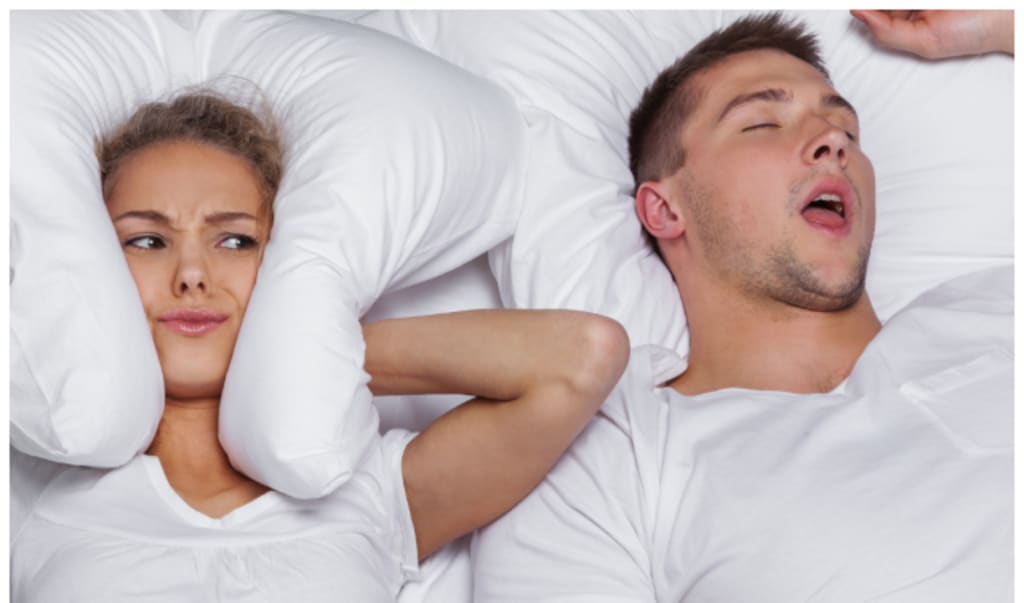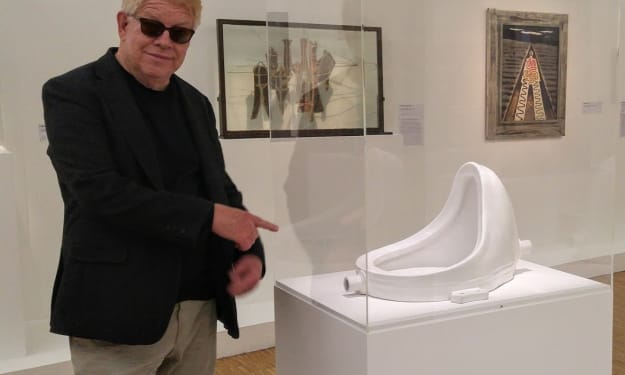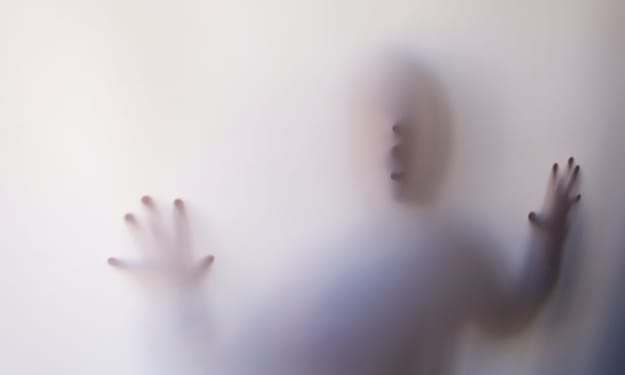Snoring Kills
Wake Up! My Doctor said Stop Snoring or Die!

That's what my doctor told me and he scared the crap outta me. I was a snorer for as long as I could remember being an adult.
It has always caused problems. Separate sides of the bed. Separate bedrooms. Occasional arguments and curling up in the living room on the couch.
We - my wife and I - went to the doctor for my annual checkup. Aside from the snoring, I was in great shape. Or so I thought. At the end of the visit, after checking vitals and ankles for swelling, palpitating, and even an EKG, I was dressed and ready to go home.
That's when my wife pulled out her cellphone.
"Doctor Leeds, listen to this and tell me what you think."
It was the sound of a man snoring. Snoring. Snoring. Then nothing. Silence. More silence, 23 seconds of silence. Then snort, louder snort, deep inhale, deeper inhales, then more snoring, snoring. snoring.
I didn't know it at the time, but those long breathless moments kept my wife awake wondering if I would start breathing again.
"Is that normal?" my wife inquired.
"Have you ever been checked out for sleep apnea?" asked the doc.
"No", I answered, sure that I did not have sleep apnea, and pissed at my wife for outing my nocturnal breathing.
Next thing I knew the doctor was writing out a test form that I needed to submit to the sleep clinic to get tested for sleep apnea.
I'm a writer and in the habit of looking things up so I Google "sleep apnea" and the results scared the daylights - nightlights? - out of me. 118,000,000 results. The Mayo Clinic told me the following:
Sleep apnea is a potentially serious sleep disorder in which breathing repeatedly stops and starts. If you snore loudly and feel tired even after a full night's sleep, you might have sleep apnea.
That wasn't too bad until I read "Treatment can ease your symptoms and might help prevent heart problems and other complications." Heart problems? Other complications?
More research showed me I was not alone. There are an estimated 22 million Americans suffering from sleep apnea, with 80 percent of the cases of moderate and severe obstructive sleep apnea undiagnosed. There may be more males than females, but sleep apnea is an equal opportunity destroyer, a problem for every race, color, and gender.
And I found out it's a Big Deal.
When the airflow stops, the body releases stress hormones, which over time can lead to heart disease — the leading cause of death in the United States — stroke and high blood pressure. It also can increase the risk of type 2 diabetes, liver problems. and metabolic syndrome.
It’s also associated with obesity, and experts say it can be part of a vicious cycle in which the sleep deprivation it causes can lead to even more obesity, which in turn makes the condition worse.
There are different types of sleep apnea.
The main types are:
- Obstructive sleep apnea, the more common form that occurs when throat muscles relax
- Central sleep apnea, which occurs when your brain doesn't send proper signals to the muscles that control breathing
- Complex sleep apnea syndrome, also known as treatment-emergent central sleep apnea, which occurs when someone has both obstructive sleep apnea and central sleep apnea.
There is also a list of risk factors:
- Excess weight. Obesity greatly increases the risk of sleep apnea. Fat deposits around your upper airway can obstruct your breathing.
- Neck circumference. People with thicker necks might have narrower airways.
- A narrowed airway. You might have inherited a narrow throat. Tonsils or adenoids also can enlarge and block the airway, particularly in children.
- Being male. Men are two to three times more likely to have sleep apnea than are women. However, women increase their risk if they're overweight, and their risk also appears to rise after menopause.
- Being older. Sleep apnea occurs significantly more often in older adults.
- Family history. Having family members with sleep apnea might increase your risk.
- Use of alcohol, sedatives or tranquilizers. These substances relax the muscles in your throat, which can worsen obstructive sleep apnea.
- Smoking. Smokers are three times more likely to have obstructive sleep apnea than are people who've never smoked. Smoking can increase the amount of inflammation and fluid retention in the upper airway.
- Nasal congestion. If you have difficulty breathing through your nose — whether from an anatomical problem or allergies — you're more likely to develop obstructive sleep apnea.
- Medical conditions. Congestive heart failure, high blood pressure, type 2 diabetes, and Parkinson's disease are some of the conditions that may increase the risk of obstructive sleep apnea. Polycystic ovary syndrome, hormonal disorders, prior stroke, and chronic lung diseases such as asthma also can increase risk.
After the sleep apnea test, which included a night in the clinic, wired up to a breath counting machine, face mask catching every exhale, I was diagnosed with obstructive sleep apnea.
So now, thanks to my CPAP machine, I no longer snore, sleep like a baby, avoid those gasping-for-air moments, and hopefully have NOT done too much damage to my heart so I can enjoy many more restful nights.
Just as an FYI, CPAP machines do NOT interfere with sex. If anything, they make it better!
Here's to a happy snore less sleep, and a longer healthier life.
About the Creator
David Grebow
My words move at lightspeed through your eyes, find a synaptic home in your mind, and hopefully touch your heart! Thanks for taking the time to let me in.






Comments
There are no comments for this story
Be the first to respond and start the conversation.